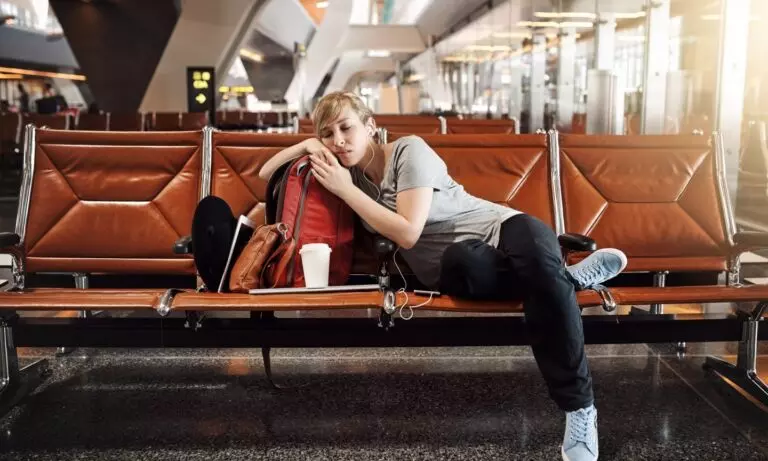Travel insurance is a hot topic. We’ve seen the industry shrink, expand, and then almost explode with demand over the past few years. These changes are accompanied by uncertainty. Travelers worry about what might happen if things don’t go as planned.
While COVID-related travel insurance can be great, there are other pressing issues that people need to consider. Let’s take an in-depth look.
What is travel insurance?
There are many kinds of travel insurance. They cover a wide range of activities. Some policies will protect you against high-risk activities while others will reimburse your expenses if you lose your bag. These are the most popular types of insurance you will find:
Common types and forms of travel insurance
Insurance is in decline
CFAR insurance was popular during the pandemic. It allows travelers to cancel for any reason. This optional addition to travel insurance can be purchased separately and will reimburse you if your travel plans change. CFAR insurance is unique in that you don’t need to be covered for it. You can apply one day and change your mind the next.
Squaremouth has released new data that shows 37% less people are searching for CFAR insurance. This is understandable, as more people are more confident about their ability to travel and have less travel restrictions.
What type of travel insurance is people looking for?
What are people most confident about? You’ll find out if you kept your eyes on the news this summer. Due to the chaos in which understaffed organizations try to satisfy large travel demand, interest in travel delay coverage has risen by 74%.
In the unlikely event of an unavoidable delay or interruption to their trip, travelers will be reimbursed by trip interruption and trip delay insurance. Trip delay insurance will cover your hotel costs if your airline cancels or delays your flight. The trip delay insurance will usually pay for food and reasonable expenses, such as clothing, shampoo, and deodorant.
Interest in delayed luggage and lost baggage insurance is also on the rise. Searches for lost baggage insurance are on the rise by 30%, and 33% more people search for it.
This makes sense if one has glanced at the news. Due to delays, Amsterdam Airport Schiphol CEO Dick Benschop was forced to resign in September. Many travelers were frustrated by the long lines and lost luggage caused by these delays.
What can you do if these types of insurance are not available to you? You can purchase a policy. Squaremouth, for example, will offer you quotes from hundreds of companies in order to find the best policy. There’s an alternative.
It is possible that you already have travel insurance
Have you ever considered a travel credit card? You don’t need to make it fancy. Many travel credit cards include some type of insurance for no additional cost, even if there isn’t an annual fee.
This is especially true for Chase credit cards. Travel insurance is available on more than 30 different Sapphire-branded hotel, airline, and Sapphire-branded cards.
Chase Freedom Flex(sm) provides for up to $1,500 per individual and $6,000 per trip for nonrefundable, prepaid passenger fares in case of trip cancellation or disruption. This insurance does not require an annual fee. You simply need to charge the fare on your card.
Another excellent option is the Chase Sapphire Reserve(r), which offers travel delay insurance. Cardholders can receive $500 per person in complimentary coverage for trips that are delayed by six hours or more.
You can also get baggage delay insurance. It will reimburse you up $100 per day for five days if your bag is delayed more than six hours. This will enable you to purchase essentials such as toiletries and clothing, as well chargers for your electronic devices.
The card also covers you if your bag is lost by the airline. You can use the card to replace any lost or damaged bags (both checked and carry-on) up to $3,000 per person per trip.
Chase isn’t the only one that offers credit card travel insurance. American Express and Capital One offer a range of credit cards with varying levels or complimentary trip insurance. These are just a few examples of good credit cards:
Each card has its own travel insurance so you will want to make sure to read the guide to benefits before using it for your trip.
You can get travel insurance that adapts to your risk
There are many types of travel insurance, but it’s clear that there is a growing need for delayed baggage, trip delays, and lost luggage insurance. You can purchase a policy if you want to travel safe. You should get several quotes as coverage and costs can differ greatly between providers.
If you don’t have travel insurance, you can check your credit card. While the best cards offer a complete suite of protections and don’t charge an annual fee, even those with a lower limit can still provide coverage for you while on the road.
Maximizing your Rewards
A travel credit card should be able to prioritize what is most important to you. These are our top picks for the top travel credit cards for 2022.
